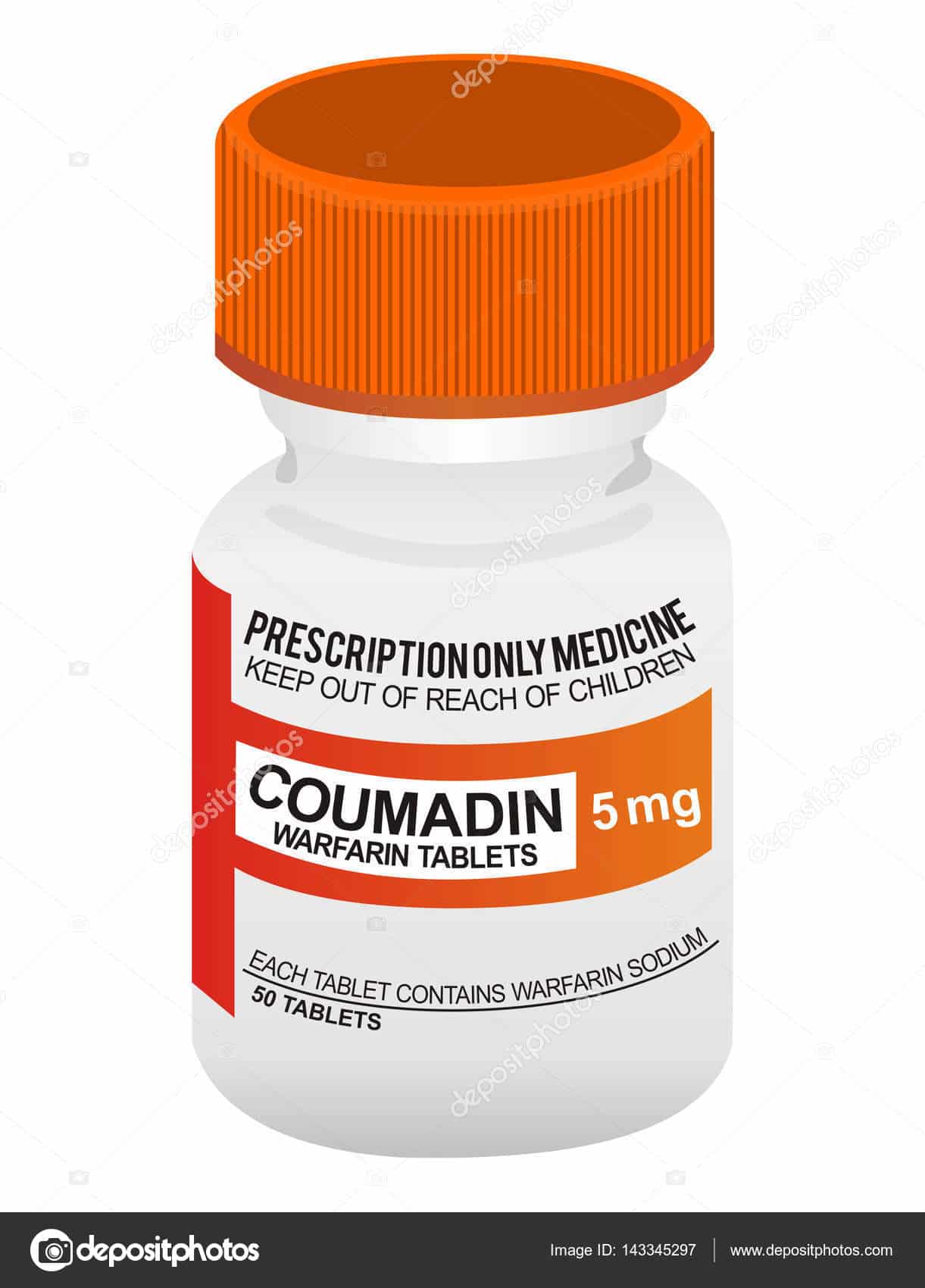The medical prescription is a crucial step in the management of patients, particularly with medications such as warfarin. This anticoagulant treatment is part of the class of vitamin K antagonists (VKAs) and is mainly used to prevent the formation of blood clots, thus avoiding serious complications such as strokes. However, warfarin is characterized by a narrow therapeutic margin, which means that its use requires constant vigilance. Side effects, especially the risk of bleeding, must be carefully considered when prescribing. Additionally, contraindications such as allergies to oral anticoagulants, severe liver insufficiency, or certain medical conditions, like anemia, necessitate a thorough evaluation of the patient before initiating treatment. Possible interactions with other medications and associated adverse effects also increase the complexity of managing this treatment. In short, warfarin is a powerful tool in the field of medicine, but its use must be handled with care to ensure the safety and efficacy of care.

Medical prescription of warfarin: indications and use
Warfarin is a widely used oral anticoagulant for preventing and treating thrombosis and embolism. It belongs to the class of anticoagulants called vitamin K antagonists (VKAs), which work by inhibiting vitamin K, essential for blood coagulation. The prescription of this medication may be necessary in several clinical situations, particularly for patients at high risk of thrombosis, such as those with mechanical heart valves or with a history of phlebitis or stroke (CVA).
Its intake must be carefully monitored to avoid complications, especially bleeding, which represents one of the main risks associated with this treatment. In the context of a prescription, the physician must assess the patient’s overall health status, their medical history, and any potential risk factors.
For pregnant women, the use of warfarin is generally contraindicated, except for those with a high thromboembolic risk. This caution is explained by the potential of warfarin to cause congenital malformations if consumed during the first trimester of pregnancy. Physicians must therefore adopt a personalized approach to prescribing, taking into account the specific needs of each patient.
Side effects associated with warfarin
Like any medication, warfarin can lead to side effects. The most concerning is the risk of bleeding, which can occur in different tissues and organs. This risk particularly increases in cases of overdose or in combination with other medications, such as non-steroidal anti-inflammatory drugs (NSAIDs), which can damage the gastro-duodenal mucosa.
It is therefore crucial for patients to follow medical recommendations and regularly perform blood tests to monitor the INR (International Normalized Ratio). A poorly balanced INR can not only lead to an increased bleeding risk but also favor a thrombosis if the treatment is insufficient. Among other adverse effects, there may also be skin reactions, conjunctivitis, or even gastrointestinal complications.
Particular attention should also be paid to drug interactions. Some substances, whether pharmaceutical or natural, can alter the effect of warfarin. This is why it is important to consult the patient information leaflet or discuss with the doctor in case of simultaneous intake of other medications. Vigilance is therefore essential in the therapeutic monitoring of patients on warfarin.
Contraindications and precautions for use
Before prescribing warfarin, the physician must carefully review the contraindications. Known hypersensitivity to this active ingredient or other anticoagulants is a primary contraindication. Likewise, patients suffering from severe liver insufficiency should avoid this treatment, as their ability to metabolize the medication may be compromised.
Furthermore, previous history of hemorrhagic stroke should also be considered unless in the case of systemic embolism. This evaluation helps minimize the risks associated with the use of warfarin. Other situations, such as anemia or impaired kidney function, may also limit the use of this molecule.
It is essential to inform the patient about the need for regular monitoring and the signs to observe that may indicate bleeding, such as unexplained bruises, frequent nosebleeds, or the presence of blood in urine or stools. Adhering to these recommendations can prove decisive for the safety and effectiveness of treatment.
In summary, warfarin is an effective medication provided there is rigorous follow-up and necessary precautions. The prescription of this treatment should take into account many factors to optimize clinical outcomes and minimize risks to the patient.
For additional details about warfarin, you can consult resources like the warfarin patient leaflet, or recommendations and updates on risks and precautions on specialized sites like Canada.ca and OmeDIT Normandie.

FAQ on Warfarin
What is the active ingredient of warfarin? Warfarin is an anticoagulant that works by inhibiting vitamin K, essential for blood coagulation.
What are the main risks associated with warfarin? The main risk associated with warfarin is the risk of bleeding, which can occur in various tissues or organs.
What are the absolute contraindications for using warfarin? Warfarin is contraindicated in case of allergy to oral anticoagulants, severe liver insufficiency, and in case of hemorrhagic stroke.
Can warfarin be prescribed during pregnancy? Warfarin is generally contraindicated during pregnancy, except in women with a high thromboembolic risk with a mechanical heart valve.
What are the common side effects of warfarin? Side effects mainly include bleeding risks, which can be exacerbated by other medications, such as non-steroidal anti-inflammatory drugs.
How should warfarin be monitored during treatment? Treatment with warfarin must be followed with rigor and vigilance to ensure proper balance and avoid complications.
What are the interactions to watch for when taking warfarin? Various medications, foods, and supplements can interact with warfarin, affecting its effectiveness and increasing the risk of bleeding.
What are the symptoms of warfarin overdose? Symptoms of an overdose may include excessive bleeding, unexplained bruises, and bleeding from the nose or gums.












